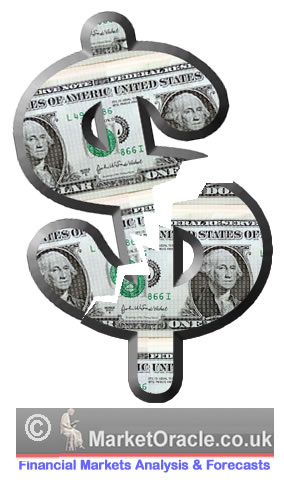
Empire Consciousness Brings Hardship to America
History has repeated itself time after time--social and economic booms do not come hand in hand with political and military expansion, no matter how strong an empire is. “Butter” and “Cannon,” just like “fish” and “bear's paw,"* cannot happen at the same time. Johnson, a 1960's U.S. president, might understand it best as the Vietnam War made his plan for a “Great Society” fall apart at the Bretton Woods agreement. Again in the 21st century, reality rings the alarm bell to those who belittle history.
After the dot.com bubble broke in the early 21st century, the American economy began to decline. The September 11th attacks aggravated this. But the U.S. immediately showed its barbarism through unilateralism and infantilism, and of binary opposition, due to the “arrogance of power” formed after the Cold War. To save its economy and protect its oil interests and hegemony, the U.S. government played two cards: interest rate cuts and the War on Terror. Interest cuts were the best monetary policy to be applied by the federal government to avoid cyclical effects. Looking back, the interest cuts had a short-term effect, as expected, and the economy seemingly recovered. But the cuts had actually created a financial monster that would be awakened when the FED returned to the interest growth period. Those “financial magicians” paid attention only to “refining gold” and the governments and people were hoodwinked until they were bit by the waking monster.
It seems that the anti-terrorist war has brought a great profit to America’s military-industrial complex, but the U.S. public sectors are pulled into a mud pit by it. “War boom effects” lifts the U.S. economy for a short term, and together with the subprime loan bubble caused by the interest cuts, aids the U.S. to come out of the shadows cast by terrorist attacks. The long-term wars of attrition, especially the war in Iraq which costs 10 billion dollars monthly, are unaffordable for the U.S., even though it might not cause casualties as tragic as the Vietnam War.
“Violence has become the nation’s leading industry…yet this militarization of the economy is undermining us internally," the famous Senator Fulbright said 20 years ago. The U.S., a nation built on a policy of expansion, is eventually paying a high price for its “empire dream," leaving now a total debt of thousands of billions of dollars by the American government at all levels. The debt will reach a level that will devour America’s GDP in the next ten years if a reform isn't launched as soon as possible. When choosing between “financial innovation” and the “anti-terrorist war,” the U.S. ignored, even abandoned many social and governmental functions of importance, because it expected to have both the “fish” and the “bear's paw” at once.
The author is a scholar on U.S. international relations.
*Editor's note: Mencius said: "I love fish, so do I love bear's paw; but if I cannot get both at once, I give up fish and take bear's paw."
